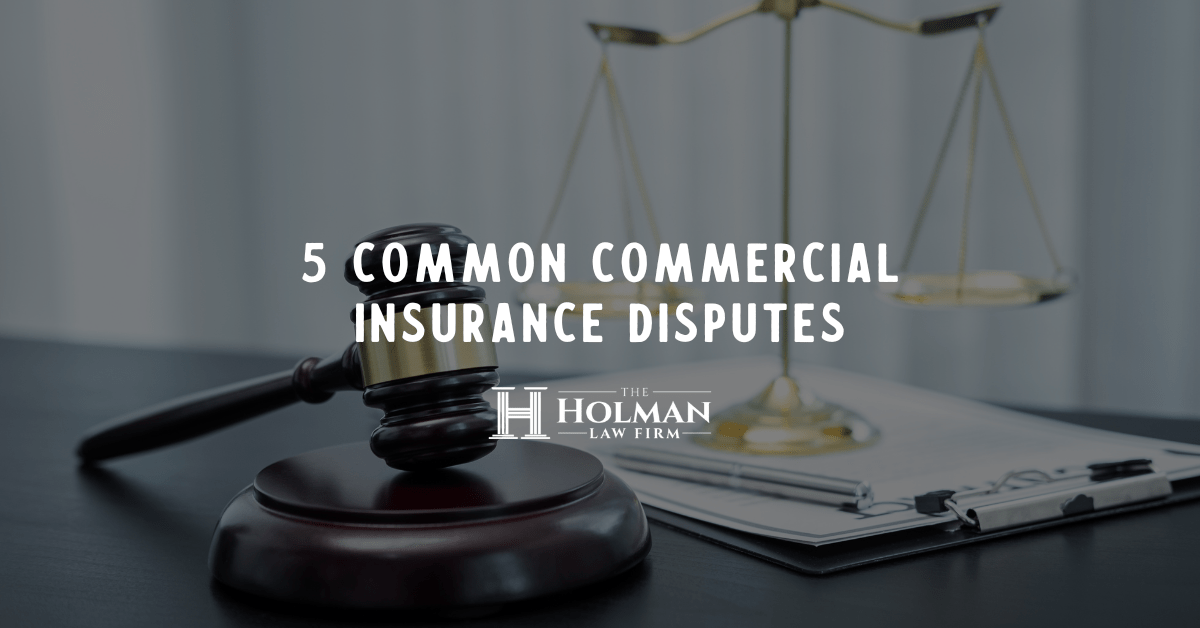When you have an insurance policy, you should be able to trust that the benefits you’re buying will be there when you need them. But sometimes things go wrong and disputes arise over who pays for what. In this article, we’ll discuss some common areas where disagreements occur like property damage, maintenance and repair, business interruption, pollution liability and underwriting disputes. We’ll also talk about how to resolve these issues if they arise for your business.
Property damage disputes.
Property damage disputes are common, especially when it comes to commercial insurance claims. These disputes are most commonly associated with auto accidents, but they can also apply in other circumstances—for example, if a storm damages your property or if you have a dispute with an employee over who caused the damage. In these types of cases, determining whether or not you’re entitled to compensation for damages or loss may be difficult because insurance companies often try to undervalue the amount of money you’ve lost. To get a fair settlement for your losses and expenses due to such events as those mentioned above and others like them (including theft), you may need an experienced attorney’s help. You’ll want someone who understands how insurance companies work and can help you gather evidence that supports your claim so that your case will stand up in court if necessary.
Claims of inadequate maintenance.
The importance of maintenance cannot be overstated. It’s a key component to keeping your business running smoothly and safely. Here, we will explain the different types of maintenance, why they matter and how they affect your commercial insurance policy.
- Occupancy-based maintenance: This type of maintenance is done by a third party (like a contractor) who checks in on your building or space regularly. The goal is to catch problems before they become big enough to require expensive repairs, or even shut down the facility entirely.
- Time-based preventive maintenance: With this kind of program, you schedule regular services at specified intervals throughout the year—say once every six months—to keep all systems running well into the future without incurring any major unplanned costs later.
Business interruption claims.
Business interruption insurance is designed to cover the costs of lost income if your business is unable to operate because of a covered loss. If you have a claim, you need to prove that the interruption is not your fault.
You can also claim for loss of profits and loss of goodwill. Loss of profits refers to the amount that it would have cost you to make up for lost sales during the time period in which your business was shut down. Loss of goodwill includes how much it may cost you in future sales that result from having been out-of-service for an extended period. All are important factors when determining whether or not your business has suffered enough damage from an incident and should be compensated by their commercial insurance policy.
Pollution liability claims.
If you are a business that handles, transports or stores hazardous materials or waste, pollution liability insurance is a must. This type of policy helps protect your assets if someone suffers an injury on your property and files suit against you.
If the accident was caused by negligence on the part of a third party (e.g., someone who drove over debris left after an oil spill), then this type of coverage will provide protection against such claims.
In order to determine whether or not you need it:
- Ask yourself if there is any chance that something bad could happen at your workplace that could hurt someone else—and does it matter what kind of worker did it? If so, buy this coverage; if not… you could skip it for now!
- How much do these claims cost?
- How often do they happen?
Underwriting disputes.
When you purchase commercial insurance, one of the main things you do is pick out the specific coverages that will be included in your policy. Once you decide on these things, they’re locked into place and cannot be altered or removed.
However, sometimes an insurance company may deny a claim due to something related to preexisting conditions (or other reasons). This is known as an underwriting dispute.
There are several ways to resolve this issue:
- The first step is to talk with your agent or broker and see if there are any other options available for getting coverage elsewhere. If so, it’s worth doing some research into which companies offer similar policies at lower prices before going through the process of switching insurers entirely.
- Another option might be appealing directly with the company itself; if others have successfully done so recently then chances are there’s still hope for your case too!
Insurance disputes can be really complicated, but you’re not alone in fighting them.
When you’re facing a commercial insurance dispute, it can be easy to feel like there’s no way out. But if you know what to do and how to do it, the process is much more manageable and much less scary. You can start by learning more about the specific kind of insurance dispute you are facing and how it relates to other kinds of disputes. For example:
- Personal Injury Lawsuits (Personal Injury)
- Contract Disputes (Contract)
- Property Damage (Property Damage)
We hope this list helps you navigate the world of commercial insurance disputes. While they can be complicated and difficult to navigate, there are resources available to help you succeed in fighting your claim. The best thing you can do is stay organized, keep a record of all communication with your insurer, and seek legal counsel if necessary.
Turn to the experienced and compassionate personal injury lawyers of The Holman Law Firm To schedule a free initial consultation. If you have questions or if you find yourself in need of a lawyer to handle your personal injury, contact us at Holman Law Firm today and let us evaluate your case.



